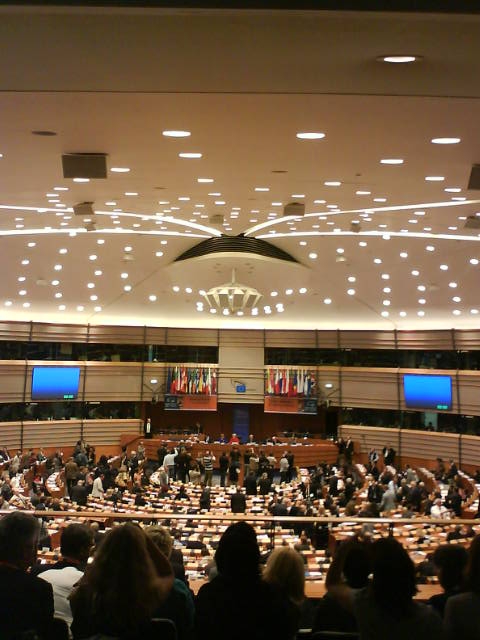The plenary session reflected the main themes in current EU institutional and political affairs. Jose Manuel Barroso as re-elected President of the European Commission and European Parliament President Jerzy Buzek had accepted an invitation from the 344 locally and regionally-elected politicians that make up the CoR. The sessions main theme was the battle against the effects of climate change and preparations at regional and municipal level for the Copenhagen summit. Highlighting the global dimension of its concerns, the CoR had invited Elizabeth Kautz, Vice-president of the US Conference of Mayors, to speak about what local and regional politicians are doing on her side of the Atlantic and the possibilities for cooperation with their European counterparts in the battle against climate change.
Addressing the first CoR plenary session after his election as President of the European Parliament, Jerzy Buzek declared: „"I have always been a supporter of the decentralisation of powers. Subsidiarity is a key to the welfare of our citizens. This is why we need you, as Europes elected regional and local representatives."
Top priority was given to the following four themes on the 81st Plenary Session of the Committee of Regions of the EU: climate change; European transport and the area of freedom, security and justice.
Committee of the Regions:
Around two-thirds of EU legislation is implemented by local and regional authorities in the Member States. The Committee of the Regions was created in 1994 to give representatives of local government a say over the content of these laws. The CoR organises five plenary sessions a year, where its 344 members vote on opinions issued in response to proposed legislation. The European Commission, which initiates EU laws, and the Council of Ministers, which determines the final content of the legislation (usually in tandem with the European Parliament), are obliged to consult the CoR on a wide range of policy areas including the environment, employment and transport. The Lisbon Treaty will strengthen the position of the Committee of the Regions further. In future, the Committee must be consulted by the European Parliament on all issues that are important for regions and municipalities. The Committee can also appeal to the EU Court of Justice if its rights are infringed or it believes that an EU law violates the subsidiarity principle or fails to respect regional or local powers.
Further information on the Committee of the Regions of the EU on: www.cor.europa.eu
Gallery












